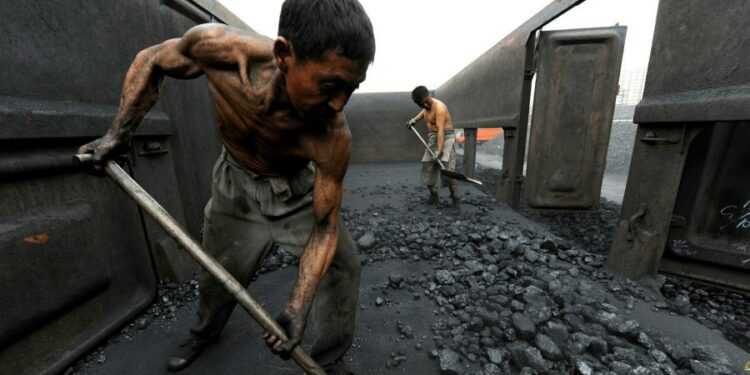China’s efforts to ease an energy crunch by stabilising volatile coal prices have been complicated by a surge in wholesale petrol and diesel costs, forcing filling stations to ration fuel.
The energy crisis has intensified pressures on Beijing ahead of this weekend’s COP26 climate summit in Glasgow.
China’s economic planning agency said on Thursday that it met energy companies about “setting standards” to combat “excessive profits”, raising expectations that the government could set new price caps on coal.
The caps would follow government limits on power prices for industrial and retail users that have exacerbated electricity shortages in the past few months.
But a surge in the wholesale prices of gas and diesel, which have jumped almost 20 per cent over the past month, have led to widespread rationing in recent days, according to state media. Wholesale fuel prices now exceed government-set retail prices, piling financial pressure on refineries and petrol stations.
The coal and petrol shortages have highlighted China’s dependency on carbon fuels even as Beijing reiterates its commitment to ambitious environmental targets ahead of the COP26 summit.
President Xi Jinping wants China to achieve carbon neutrality by 2060, with emissions peaking by the end of this decade. Last year China accounted for more than half of global coal consumption.
The National Development and Reform Commission, the state economic planning agency that has been considering measures to control skyrocketing domestic coal prices, said that it would dispatch inspection teams to mines. Coal prices rose at Rmb2,000 a tonne in some regions this month.
High prices and rigid caps on how much coal-fired power generators could charge made it impossible for many producers to operate at a profit, worsening the power crisis that spread rapidly across the country in September. The State Council, China’s cabinet, has since said it would allow generators to sell more electricity at market rates.
Thermal coal futures traded on the Zhengzhou commodities exchange fell to their lowest level in more than a month on Thursday, down 13 per cent to Rmb1,033 a tonne.
Jack Shang, an investment analyst at Citibank, said that price caps would make it difficult for domestic coal miners and importers to meet demand through the winter months. China’s coal imports increased 76 per cent year-on-year in September.
“There will be more power rationing for the manufacturing sector into the winter, resulting in weak demand for steel and non-ferrous metals,” Shang said.
About 90 per cent of China’s coal supply comes from domestic producers, and central planners have demanded that 153 mines expand production. The NDRC said this month that average daily coal production had risen to 11.5m tonnes, up almost 10 per cent from September output, as power plants expanded their coal inventories.
On Wednesday, the NDRC said it would maintain a “zero tolerance” approach towards “regions and companies that have not strictly implemented the requirements for coal supply and price stability”.
China’s energy challenges are intensifying at a difficult time for the world’s second-largest economy. While the government is on track to exceed comfortably its year-on-year growth target of at least 6 per cent, quarterly figures reveal that momentum is slowing.
China’s economy grew just 0.2 per cent in the third quarter compared with the previous three months, its smallest expansion in at least a decade.
The coal and fuel shortages have also stoked soaring producer prices, which rose a record 10.7 per cent in September. But consumer price inflation remains subdued, up just 0.7 per cent last month.
Consumption growth has been hampered by the government’s “zero Covid” approach to the coronavirus pandemic, which mandates draconian testing regimes and lockdowns even during outbreaks that are moderate by global standards.
China reported 39 new Covid cases on Wednesday — part of an outbreak that has spread to 11 provinces over the past 10 days.
Additional reporting by Hudson Lockett in Hong Kong











